航空航天工程理学学士
Bachelor of Science in Aerospace Engineering

学历文凭
Bachelor Degree

专业院系
Mechanical and Aerospace Engineering

开学时间

课程时长

课程学费

国际学生入学条件
To be considered for admission to UCLA, international students must have completed secondary school with a superior average in academic subjects and have earned a certificate of completion which enables the student to be admitted to a university in the home country.
English language proficiency is critical to your success at UCLA. Applicants, whose first language, or language of instruction for at least the last three years, is not English, are required to take the Test of English as a Foreign Language (TOEFL) or the International English Language Testing Service (IELTS).
Test of English as a Foreign Language (TOEFL): A competitive score is above 100 (with sub-scores above 22)
International English Language Testing System (IELTS): A competitive score is 7 or higher.
IDP—雅思考试联合主办方

雅思考试总分
7.0
- 雅思总分:7
- 托福网考总分:100
- 托福笔试总分:160
- 其他语言考试:Duolingo - 120 or higher on the Duolingo English Test DET.
CRICOS代码:
申请截止日期: 请与IDP联系 以获取详细信息。
课程简介
Aerospace engineers conceive, design, develop, test, and supervise the construction of aerospace vehicle systems such as commercial and military aircraft, helicopters, and other types of rotorcraft, as well as space vehicles and satellites, including launch systems. Aerospace engineers are employed by aerospace companies, airframe and engine manufacturers, government agencies such as NASA, the military services, and research and development organizations.<br><br>The aerospace industry is a high-technology activity, and aerospace engineers are generally well versed in applied mathematics and the fundamental engineering sciences, particularly fluid mechanics and thermodynamics, dynamics and control, and structural and solid mechanics. Aerospace vehicles are complex systems, and their proper design and construction involves the coordinated application of several disciplines, including aerodynamics, structural analysis and design, stability and control, aeroelasticity, performance analysis, and propulsion systems technology.<br><br>Aerospace engineers make extensive use of computer systems and programs and should have at least an elementary understanding of modern electronics. Aerospace engineers work in a challenging and highly technical professional atmosphere and are likely to operate at the forefront of scientific discoveries, often stimulating these discoveries and providing the inspiration for the creation of new scientific concepts.<br><br>Outcomes for Aerospace Engineering Program<br><br>a. Ability to apply knowledge of mathematics, science, and engineering.<br>b. Ability to design and conduct experiments, as well as to analyze and interpret data.<br>c. Ability to design a system, component, or process to meet desired needs within realistic constraints such as economic, environmental, social, political, ethical, health and safety, manufacturability, and sustainability.<br>d. Ability to function as a productive member of a team, which considers multiple aspects of an engineering problem.<br>e. Ability to identify, formulate, and solve engineering problems.
相关申请
 预科
预科 奖学金
奖学金 实习机会
实习机会 在校学习
在校学习 跨境学习
跨境学习 校园授课-线上开始
校园授课-线上开始 在线/远程学习
在线/远程学习
开学时间&学费
学费信息仅供参考,请与IDP联系以获取详细信息
| 开学时间 | 时长 | 学费 | 地点 |
|---|
学校排名

世界排名17
数据源:
泰晤士高等教育世界大学排名
关于加州大学洛杉矶分校

除了哈佛、耶鲁、普林斯顿,UCLA也许是中国学生与家长最为熟知的美国院校了。离太平洋海岸线不到5英里,与贝弗利山庄和好莱坞几分钟的路程,这样得天独厚的地理位置与高居不下的学术排名让UCLA成了众多孩子申请的默认目标。27000名在校生看上去数量很庞大,但其实,UCLA超过一半以上的班级人数都不到20人。他们分布在129个不同的本科专业当中。作为曾经全美公立大学排名第2的UCLA,拿的出手的专业自然相当多,其中最有名的应属工程和应用科学学院。作为NBA传奇球星贾巴尔的母校,UCLA在体育方面的造诣令人叹为观止。目前,UCLA的22支NCAA Division I 运动队获得的冠军头衔总数量排名全美所有高校的第一位。当中最受关注的是UCLA篮球队,无论输赢,场场爆满。每年注册参加UCLA校内运动项目的学生总量都超过8000人。
本校相关课程
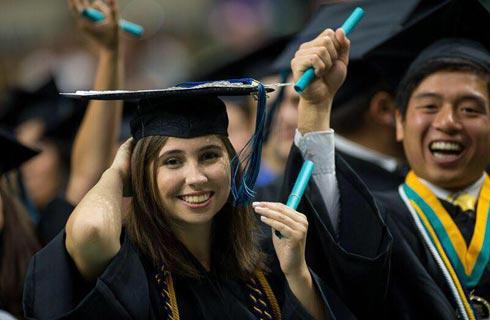
Doctor of Philosophy in Gender Studies
学历文凭
Ph.D.
开学日期
课程费用总额

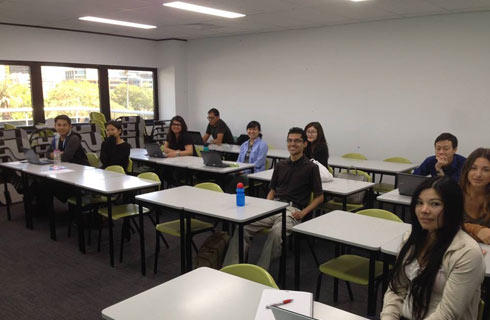
Master of Urban and Regional Planning
学历文凭
Masters Degree
开学日期
课程费用总额

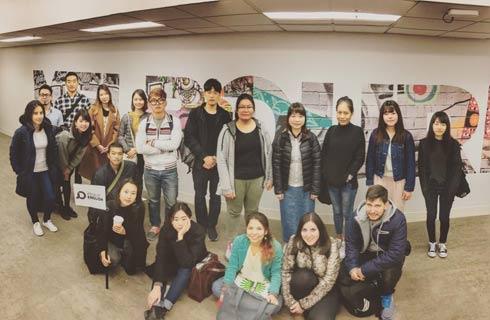
Doctor of Philosophy in Theater and Performance Studies
学历文凭
Ph.D.
开学日期
课程费用总额

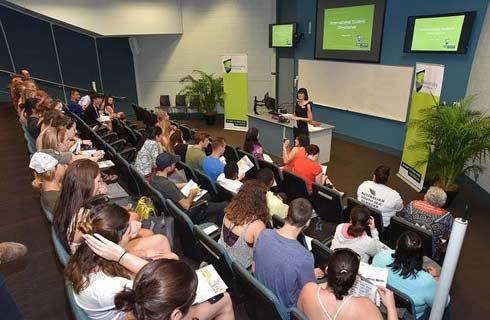
Master of Fine Arts in Acting
学历文凭
Masters Degree
开学日期
课程费用总额

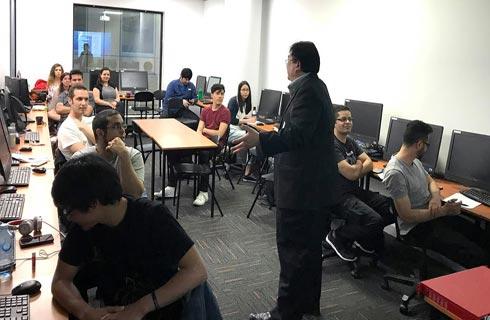
Master of Science in Statistics
学历文凭
Masters Degree
开学日期
课程费用总额


Master of Arts in Spanish
学历文凭
Masters Degree
开学日期
课程费用总额

其他相关课程
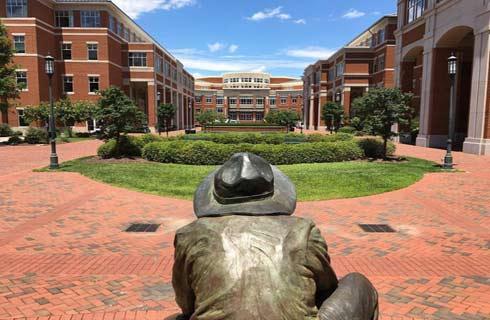
航空航天工程学士学位
 多伦多都会大学
多伦多都会大学学历文凭
Bachelor Degree with Honours
开学日期
课程费用总额

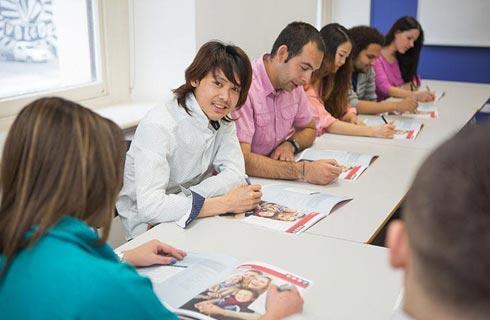
Master of Science in Aerospace Engineering
 俄克拉荷马大学
俄克拉荷马大学学历文凭
Masters Degree
开学日期
课程费用总额

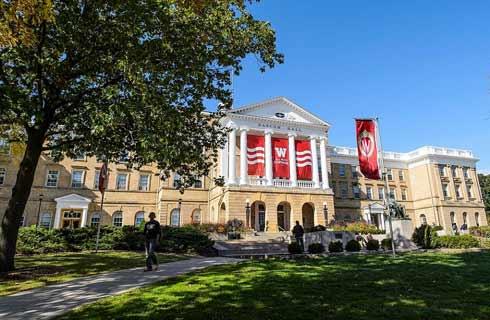
航空航天工程理学学士
 凯斯西储大学
凯斯西储大学泰晤士高等教育世界大学排名:145
学历文凭
Bachelor Degree
开学日期
课程费用总额


航空航天工程理学学士
 佛罗里达理工学院
佛罗里达理工学院泰晤士高等教育世界大学排名:1045
学历文凭
Bachelor Degree
开学日期
课程费用总额

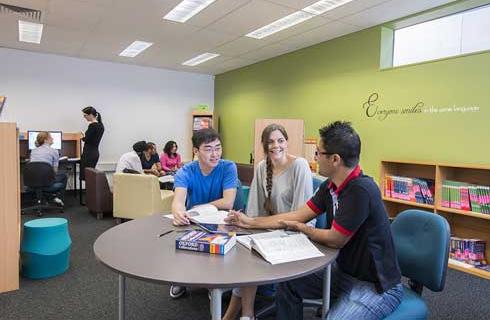
Master of Science in Aerospace Engineering
 弗吉尼亚理工大学
弗吉尼亚理工大学学历文凭
Masters Degree
开学日期
课程费用总额


飞机技术员动力装置应用科学副学士
 圣菲利普斯学院
圣菲利普斯学院学历文凭
Associate Degree
开学日期
课程费用总额










